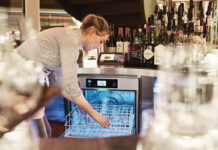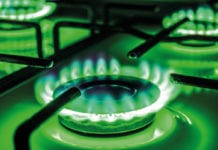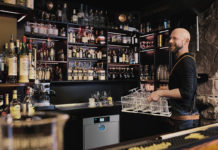The importance of keeping premises clean shouldn’t be underestimated
THERE are a lot of factors that go into running a successful licensed premises. But even the best drinks range, tastiest food and friendliest staff won’t be able to save an outlet’s reputation if its hygiene standards aren’t up to scratch.

That was the message from commercial cleaning specialists, who warned licensees against complacency when it comes to cleanliness standards in their venue.
“Keeping the front and back of house clean and tidy is essential and should be taken seriously,” said Peter Alsworth, chemical sales director at Winterhalter.
“In these days of social media no establishment can afford adverse publicity.
“Even staff uniforms or dress code can tell a story.”
Heather Beattie, brand manager for Jantex at Nisbets, agreed.
She said: “The importance of excellent hygiene is paramount in any commercial environment and using the right cleaning products can have a huge impact on the levels of hygiene licensed venues are able to achieve.”
And Andy Donnelly of commercial cleaning company Blitz Group argued that, unlike other elements of a venue’s offer, the cleanliness of an outlet is something customers will be able to spot as soon as they walk through the door.
“Customers’ first impressions are important, so therefore a clean and tidy front of house is very important,” said Donnelly.
“A daily cleaning programme of all front of house areas prior to opening is essential.”
Having an agreed cleaning regime and range of products makes life easier.
However, back of house, despite not being as visible to customers, is arguably even more important, said Donnelly.
“Back of house in relation to the cleanliness of the kitchen and kitchen extraction becomes more important in relation to compliance with environmental health regulations and to comply with the requirements of business’s insurance,” he said.
Back of house equipment such as extraction systems are particularly important in this respect, as companies can be found liable in the event of an accident.
“In the event of a fire the insurer will ask for evidence that the recommended standard of cleaning of the system has been undertaken to their satisfaction and failure to have done so may invalidate any claim,” said Donnelly.
Regular cleaning of surfaces and equipment by staff is essential, say firms, but it’s the responsibility of management to ensure systems are in place.

Bob Wood, director of DC Warewashing & Icemaking Systems, said management should always ensure that staff “read, understand and carry out regular basic cleaning and maintenance checks” on any equipment in a venue.
“Create a daily and monthly cleaning routine and rota for each type of machine which includes cleaning filters and the tank daily and wash and rinse arms weekly,” said Wood.
Establishing a set routine for cleaning can also help cut down on confusion, according to Peter Alsworth, chemical sales director at Winterhalter.
“Having an agreed cleaning regime and a structured range of products in place makes life easier, especially if staff transfer between sites, since consistency is easier to maintain,” he said.
Ensuring staff are properly trained is also vitally important – and can help reassure customers of a venue’s hygiene standards, said Alsworth.
“By undertaking thorough staff training bars and restaurants can display their food hygiene and safety certificates publicly to reassure guests,” he said.
Keeping front and back of house clean and tidy is essential and should be taken seriously.
“Training on cleaning techniques is important, as staff will use domestic cleaning products at home but they need to understand that the chemicals used in the hospitality industry are much stronger and require careful handling.
“These days, concentrates that use special dispensing systems are generally used throughout the industry.”
In-house cleaning will only go so far, however, and licensees were advised to call in professionals to carry out regular deep-cleans.
“In addition to routine cleaning, all commercial equipment requires professional servicing by a qualified engineer at least once a year, and indeed some requires servicing twice per year depending on type of machine, usage and water hardness,” said Wood, of DC Warewashing & Icemaking Systems.
External companies can also be of help when licensees are formulating cleaning schedules for staff to carry out, according to Donnelly of Blitz Group.
“A reputable kitchen extract cleaning company should be able to inspect systems and advise and formulate a cleaning regime for the business,” said Donnelly.
“They would provide a certificate of cleaning for insurance purposes and provide advisory notes of any areas unable to be cleaned, suggesting solutions to overcome this problem.”























